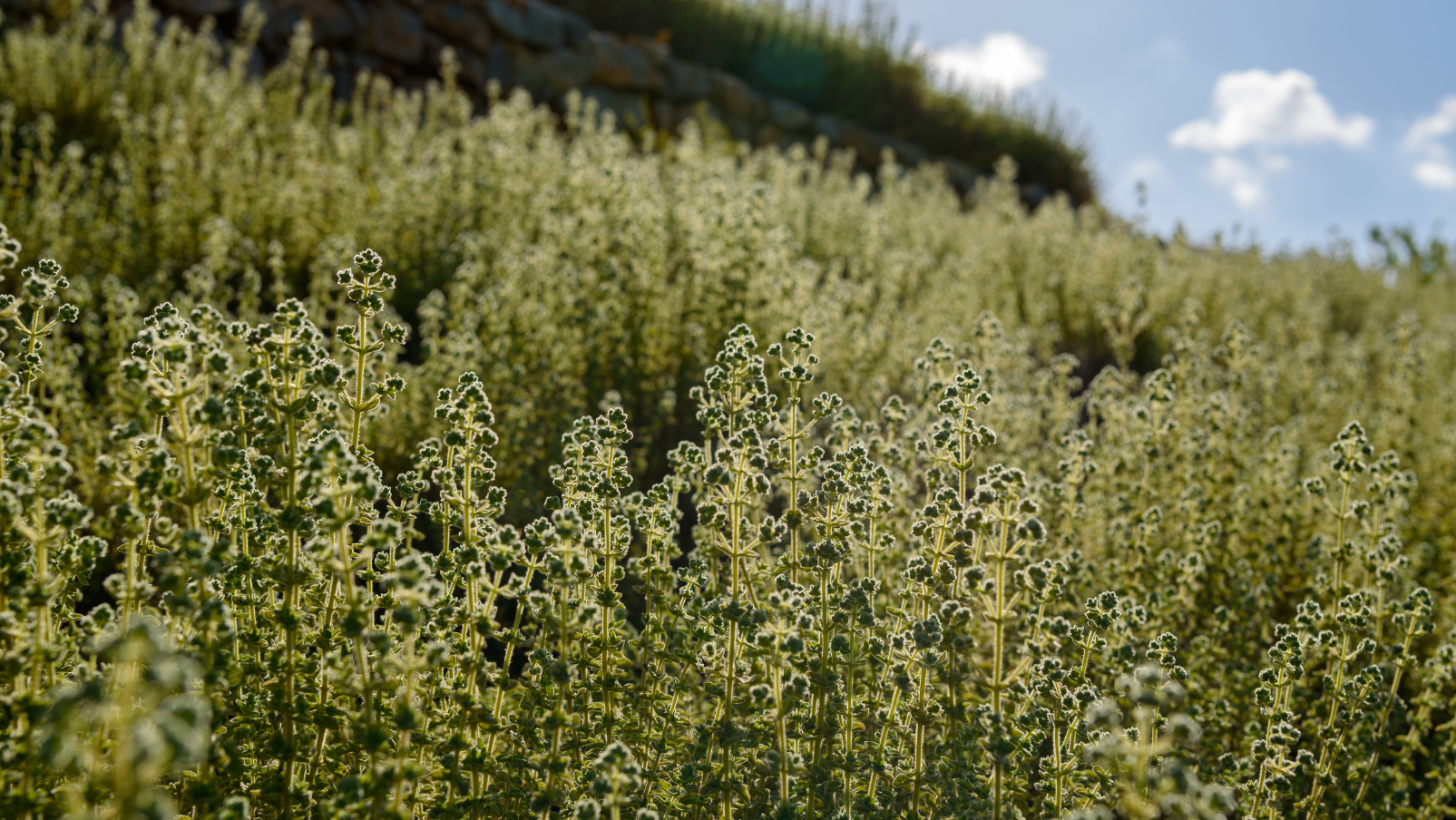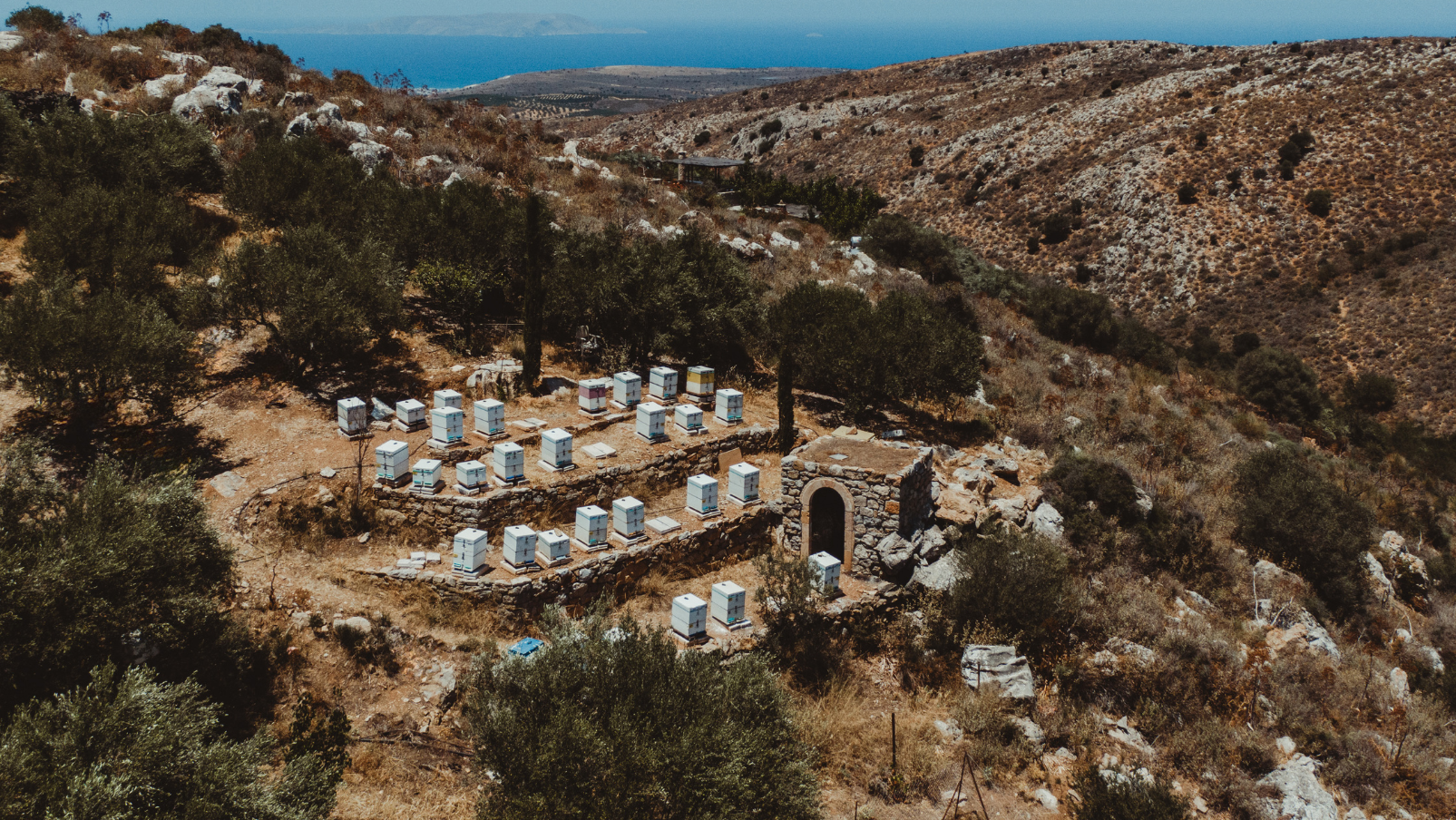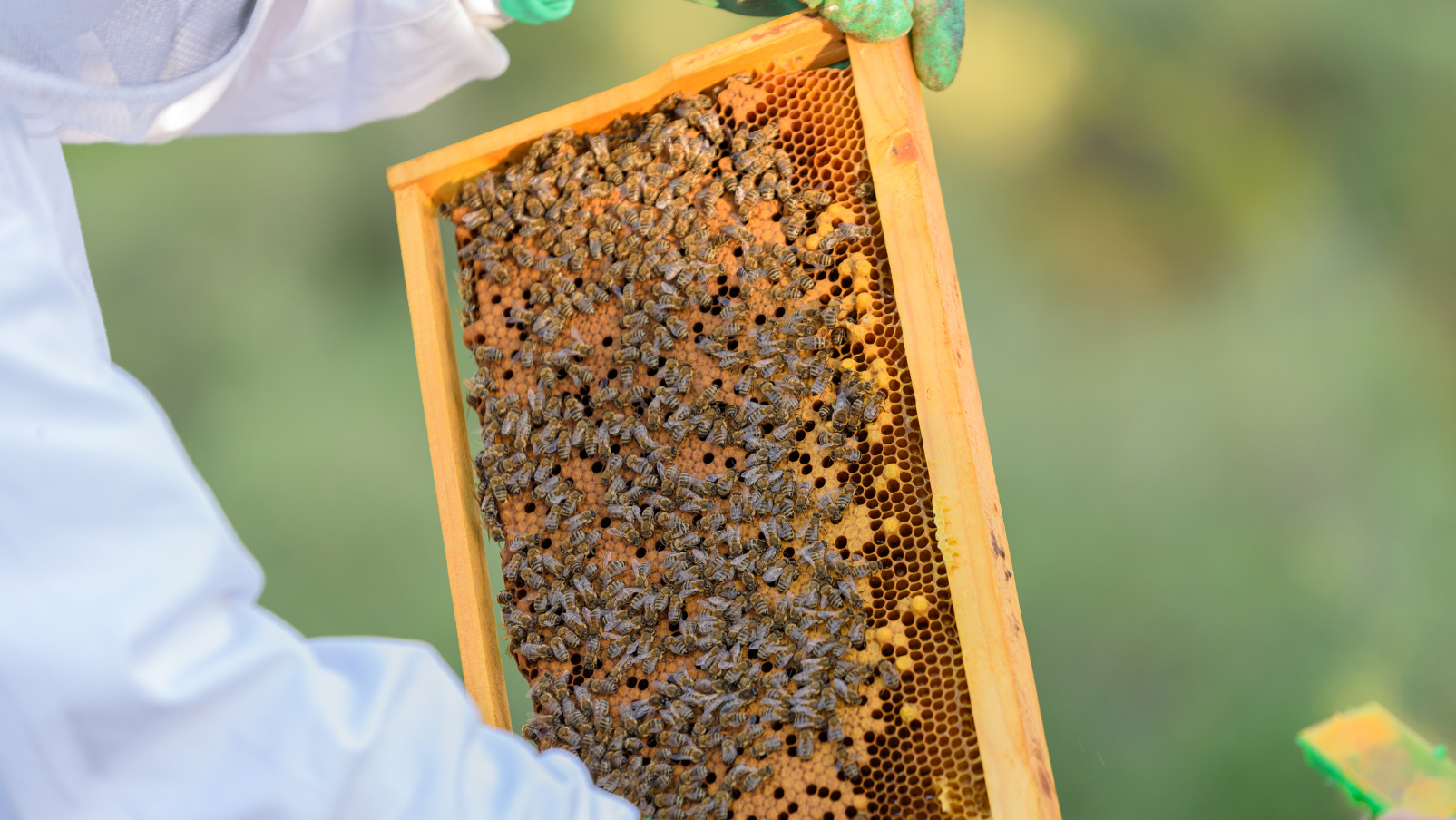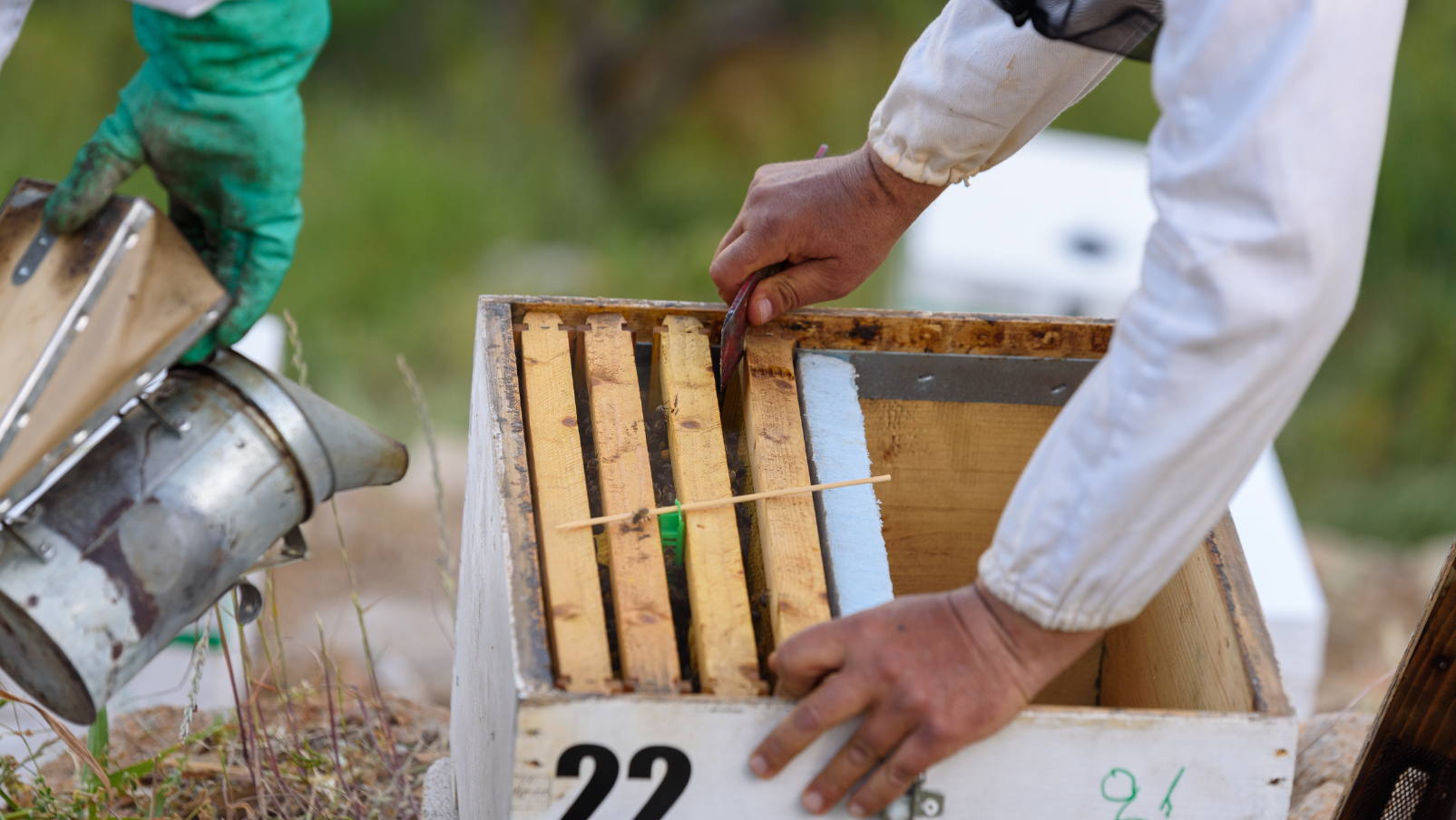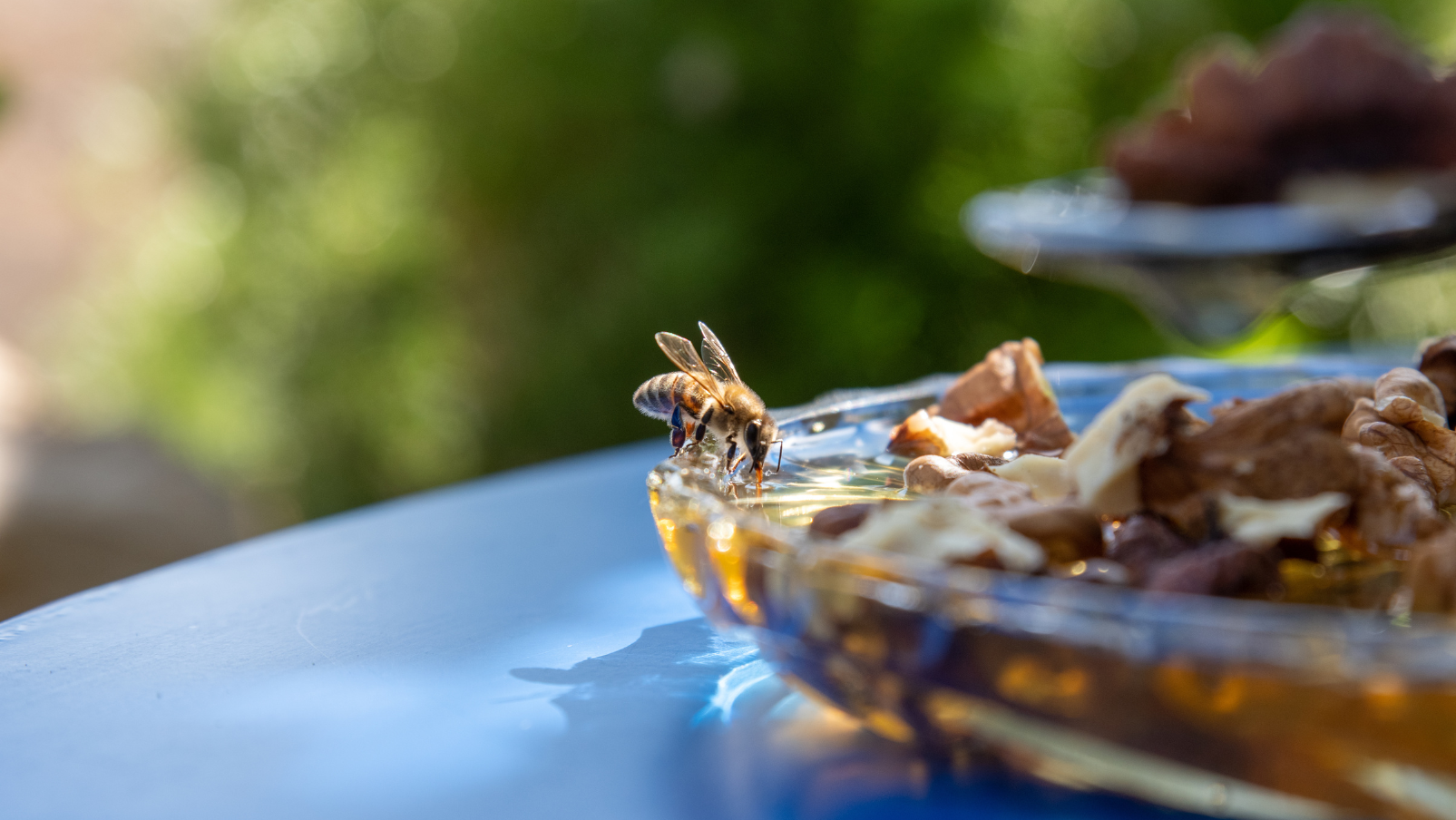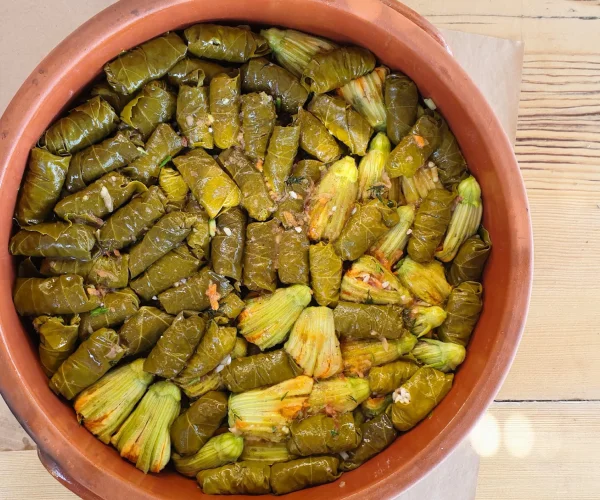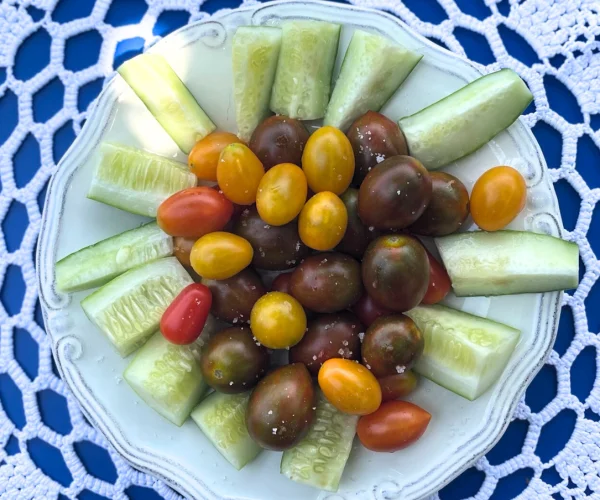Silent Spring as an invisible revolution that will determine our future
On warm spring days, the air is filled with the buzz of bees wandering from flower to flower – a sound that often goes unnoticed, but is the sonic signature of the continuation of life. The successive World Bee Days (20 May) and World Biodiversity Days (22 May) are not mere reminders on the calendar, but urgent wake-up calls. This year’s themes – “Bee inspired by nature to nourish us all” and “Harmony with nature and sustainable development” highlight to what has always existed: our intrinsic connection to the ecosystems that surround and sustain us.
Peskesi: a bridge between tradition and sustainability
Crete is one of the most important spots of biodiversity in Europe. Its unique flora and fauna, combined with centuries of cultivation wisdom, bring life to raw materials that stand out for their nutritional value and rich flavor. Wild greens, olive oil, honey, vegetables and so many other products are the living expression of a place where man and nature can coexist in harmony. Latest studies confirm that such complex agro-ecosystems produce tasty and nutrient-rich foods, and soils that are more vibrant and resilient.
This deep connection to the land is what we aim to preserve at Peskesi, bridging tradition with sustainability. Our philosophy is summed up in the phrase: “We meet the needs of the present without compromising the ability of future generations to meet theirs.” It is an approach that recognizes that we are part of nature, not masters of it, and that our health depends on the health of the planet.
On our farm in Charaso, we grow over 120 local plant varieties, maintain a seed bank and employ organic, biodynamic and regenerative practices that enhance biodiversity and protect pollinators. Through our daily practice, we show how gastronomy can be both environmentally responsible, socially just and economically sustainable – a small example of how we can live in harmony with nature, drawing on tradition to create a better future.
Beyond honey: the example of fair beekeeping in Peskesi
A particular dimension of our relationship with pollinators is beekeeping. Traditionally, this practice has focused on honey production, often at the expense of the bees themselves.
Fair beekeeping, which we practice at Peskesi, recognizes bees as beings with their own needs and not simply as means of production. This means leaving sufficient quantities of honey to feed the swarm, allowing the queen to reproduce naturally, avoiding the use of antibiotics and chemicals in the hives, placing the hives in areas with a variety of wild plants, and respecting the natural cycles of the swarm.
It is an example of how we can coexist with other species without putting our needs above theirs – a microcosm of how an economy that respects the limits of nature can function.
The co-creators of abundance and the unseen secrets of our dish
In every flower that opens and every fruit that ripens, pollinators – bees, butterflies, birds and other insects – work quietly, maintaining the diversity and abundance of life. Over 75% of food crops and nearly 90% of wild flowering plants depend on pollination – a process fundamental to the survival of ecosystems and humans. Yet this delicate balance is under serious threat. Habitat loss, agrochemicals, insecticides, monoculture and climate change are leading to a dramatic decline in pollinator populations. Studies shows that in some parts of the world, insect populations have declined by more than 75% in recent decades. This “Silent Spring” we are experiencing is a portent of an invisible revolution that will determine our future.
And if pollinators are the invisible workers, biodiversity is the canvas upon which they operate. It encompasses the diversity of life forms – from tiny bacteria to the largest mammals – the genetic differences within species and the diversity of the ecosystems they inhabit. When a species is lost, the loss is not isolated; the entire ecological web is shaken. But although genetic diversity in crops and pollination is essential to food security, ensuring resilience to disease and extremes, the harsher truth is revealed on our plate. Today, the global diet is based on just 12 plant and 5 animal species, resulting in the loss of local varieties and culinary identities.
This critical link between pollinators, biodiversity and our food are now also made clear through the Kunming-Montreal Global Biodiversity Framework (2022). This framework sets concrete targets for ecosystem restoration and biodiversity enhancement by 2030. It is a global reminder that our food security, our health and our future rely on this unseen web of life that needs our care and respect.
What can we do?
As individuals, we can:
● Plant native flowering plants that bloom in different seasons
● Avoid the use of pesticides and insecticides
● Create small “wild corners” in our gardens
● Place watering troughs for bees and insects
● Choose food from sustainable and organic crops
● Buy honey from beekeepers who respect bees and do not exploit them
As communities, we can:
● Create gardens for pollinators
● Adopt biodiversity-friendly public space management policies
● Educate younger generations about the importance of pollinators
● Participate in ecosystem restoration activities
As farmers and producers, we can:
● Implement agroecological and crop rotation practices
● Maintain ‘margins’ of wild vegetation around crops
● Diversify crops and avoid monocultures
● Turn to organic and regenerative farming methods
The ethics of coexistence: from resource conservation to relationship conservation
Pollinators and biodiversity form an inextricable cycle of interdependence that teaches us a profound truth: true sustainability is not just about conserving resources, but about conserving relationships. This realization invites us to fundamentally rethink our place in the natural world.
The anthropocentrism that dominates modern societies – the belief that nature exists primarily to serve human needs – has fostered economic growth at enormous environmental and human costs. Instead, ecosystems thrive through cooperative, reciprocal relationships where all members benefit.
We need a new ethical approach that acknowledges the intrinsic value of all life forms and their irreplaceable role in ecological balance. It is not enough to protect individual species or areas; it is necessary to safeguard the links that connect them, as well as our own relationship with them.
The bee provide us a profoundly instructive example: by collecting only the nectar it needs and pollinating a flower, it fulfills its purpose while benefiting the entire ecosystem. Similarly, by learning to live within the limits of the planet, we ensure both our own survival and the well-being of all life.
Harmony as a compass for the future
In traditional Mediterranean societies, and especially in Crete, harmony with nature was not an abstract concept but an everyday reality. Agricultural practices were adapted to the cycles of the seasons, crops were mixed and varied, and animals were treated with respect.
This wisdom of the past is the compass for our future. Harmony with nature does not mean a return to primitive conditions, but an evolution towards a more mature model of development that recognizes our interdependence with the natural world.
Bees, with their complex social organization and their decisive role in ecosystems, can be our guides on this path. They show us how collective work, efficient use of resources and cooperation with other species can lead to prosperity for the whole ecosystem.
World Bee Day and World Biodiversity Day remind us that caring for pollinators and the environment is vital. They are another opportunity to redefine our relationship with the natural world and chart a new course towards a future where nature and people as part of it flourish together.
Sources
- “2025 International Day for Biological Diversity Campaign“
- “2030 Agenda and its Sustainable Development Goals (SDGs)“
- “Bee-ing grateful to our pollinators”
- “Biodiversity — The Future Market”
- “FAO World Bee Day 2025: Bee inspired by nature to nourish us all”
- “Interactive Biodiversity-SDGs Tool”
- “International Day for Biological Diversity / 22 May: Harmony with nature and sustainable development”
- “Kunming-Montreal Global Biodiversity Framework”
- “National Biodiversity Strategies and Action Plans (NBSAPs)”
- “The State of the World’s Biodiversity for Food and Agriculture”
- “When biodiversity has a problem, humanity has a problem”
- “World Bee Day- General: We all depend on the survival of bees”
